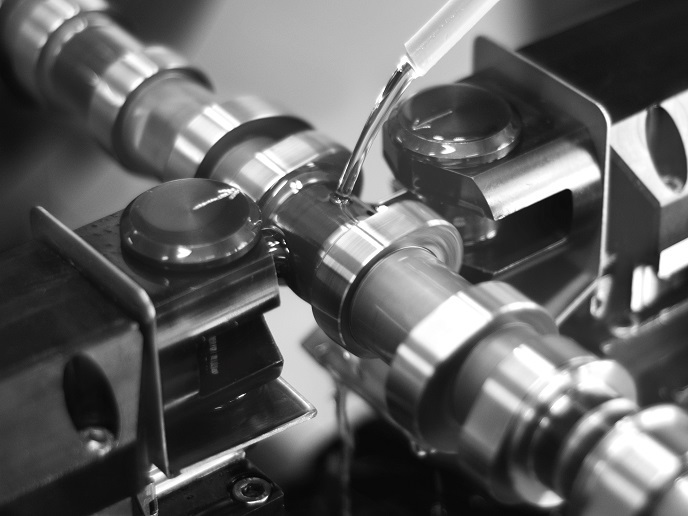A tribology test bed to lubricate European innovation
Tribology is the science of how surfaces interact in relative motion, and involves the study of friction, wear and lubrication. It is essential for the design of components such as bearings, gears and clutches. “Efficiency, durability and innovation are all key factors that must be kept in mind when developing a new product,” explains Franz Pirker, responsible for business development at AC2T research(opens in new window), the Austrian Excellence Center for Tribology in Wiener Neustadt. “This often starts with knowing which material works best and what lubricant can best meet your product’s efficiency and durability requirements.” This typically involves long development processes, substantial prototyping costs, and rigid workflows. “We looked at the current situation and thought, ‘there has to be an easier way to get answers to our tribology-related questions’,” adds Pirker. Now there is. It’s called i-TRIBOMAT(opens in new window) (Intelligent Open Test Bed for Materials Tribological Characterisation Services), and it was developed with the support of EU funding. i-TRIBOMAT is a one-stop shop for the tribological characterisation of advanced materials. “Offering such on-demand services as standardised tribological characterisation, data-driven insights, and virtual work rooms with integrated lab-to-field upscaling, i-TRIBOMAT ensures you can develop your products more efficiently and at lower costs,” says Pirker, who serves as the project’s coordinator.
Simulating material behaviour at the component level
i-TRIBOMAT is unique in that it is the world’s first user-driven Open Innovation Test Bed dedicated solely to validating and upscaling new materials. “By enabling the intelligent characterisation of tribological materials, this platform will play a key role in fostering innovation,” remarks Pirker. “In other words, it is a game changer for the European manufacturing industry.” The i-TRIBOMAT platform includes a portfolio of features and services. “It all starts with having access to a tribological infrastructure of more than 100 tribometers and characterisation equipment, including the latest protocols, procedures and tribo-analytics,” notes Pirker. The platform also offers such data-driven capabilities as cloud storage and sharing, data mining, big data analytics, an integrated tribological materials database, and fast report generation, all hosted on a secure server. According to Pirker, one of the most popular features is a web-based collaboration interface. “This is a virtual workroom equipped with tribo-models and designed to facilitate collaboration and the simulation of material behaviour at the component level,” he says.
Reducing time and costs involved in materials development
i-TRIBOMAT’s research partners(opens in new window) are regularly developing and adding new services to the platform, which will soon be made available via a spin-off entity called i-TRIBOMAT: The European Tribology Centre. “A joint venture of the various research partners, establishing this company ensures the sustainability and longevity of the platform,” explains Pirker. In preparation for the spin-off’s launch, the research team held an open call for early adopters, offering companies the chance to test i-TRIBOMAT’s developed services. “Eighteen companies replied to the call, showing just how much demand there is for reducing the time and costs involved in materials development,” concludes Pirker.






